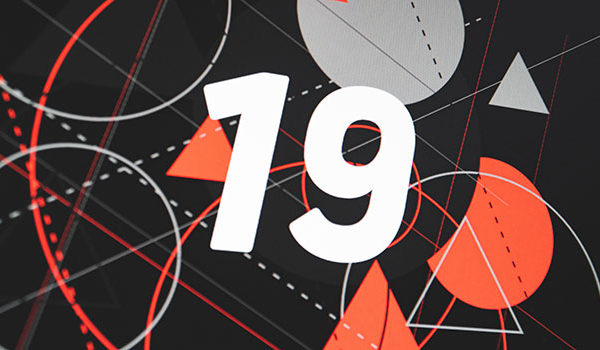(This post, written by Meira Svirsky, was originally published by The Clarion Project on July 31, 2016. It has been republished with their permission.)
Recep Tayyip Erdogan is currently the president of Turkey, having assumed the position after serving as prime minister from 2003 to 2014. Although his current office traditionally holds less power, Erdogan has made himself the de facto ruler of Turkey (while advocating for more power through an executive presidency system for Turkey).
He served as the Mayor of Istanbul from 1994 to 1998, a position from which he was dismissed and banned from office after being sentenced to 10 months in prison for inciting religious intolerance in 1998. (See video below)
https://www.youtube.com/watch?v=8Yqyh_sPtdU
He publicly toned down his rhetoric and founded the Islamist AK party in 2001, apparently implementing the “gradualism doctrine,” advocated by Islamist groups such as the Muslim Brotherhood, of which he is a major supporter.
Under Erdogan’s leadership, Turkey is reportedly one of the top financial sponsors of Turkey is also said to have trained Hamas security forces in Gaza through non-governmental groups. Erdogan.
Increasing authoritarianism by Erdogan and his government sparked nationwide protests in the summer of 2013. Access to social media and internet were blocked. Erdogan, his son and many followers were also involved in a corruption scandal that threatened to bring down his government, however, through dismissing judges, police investigators and prosecuters, Erdogan managed to strong-arm himself into retaining power.
He most recently survived an attempted coup and has used the event to purge tens of thousands of suspected “dissidents” from government, educational and military positions. (Some suspect the coup was orchestrated by Erdogan.)
AK Party or the Justice and Development Party (Adalet ve Kalkınma Partisi) is the ruling party of Turkey’s President Recep Tayyip Erdogan. Founded in 2001, it is the Islamist, conservative, ruling party in Turkey today. The party held a majority of seats for 13 years, but that majority in the elections of June 2015. It regained the majority the next November when a snap election was called.
At first, the AKP portrayed itself as pro-Western and pro-American. It was originally supported by Fetullah Gulen’s Hizmet movement (see below). The AK Party come to power at the end of 2002 and has gradually been implementing its Islamist agenda on the country in an increasingly authoritarian manner.
The party supports the Muslim Brotherhood and promotes neo-Ottoman aspirations through its leader Erdogan.
Fetullah Gulen is an extremely wealthy Fethullah GulenSufi cleric who was accused of attempting to overthrow the government and establish an Islamic state in Turkey in 1999. He fled to America where he directs his vast empire of T.V. stations, newspapers and even private schools— both in Turkey, the U.S. and worldwide — from his well-guarded compound-like estate near Philadelphia.
Through his Hizmet network (see below), his followers hold influential positions in the police, judiciary, military and secret service. Because of his reach, one Turkish source said, “No Turkish journalist would dare write anything negative about him.” His followers say they are practicing ‘hizmet,’ or Muslim community service, but they have other agendas.”
Hizmet is Fetullah Gulen’s movement in Turkey. The movement is call edHizmet (“service”) by its supporters and referred to as Cemaat (community, assembly) by the public. Through this movement in the 1970s, Hizmet began creating a parallel state inside Turkey through a network of schools, media outlets and businesses and recruitment of supporters in the security services and government.
In 1999, Turkish television aired footage of a secret sermon given by Gulen where he told followers to secretly infiltrate the institutions of power. The tape showed him saying: “You must move in the arteries of the system without anyone noticing your existence until you reach all the power centers … until the conditions are ripe, they must continue like this. If they do something prematurely, the world will crush our heads … The time is not yet right. You must wait for the time when you are complete and conditions are ripe, until we can shoulder the entire world and carry it.
“You must wait until such time as you have gotten all the state power, until you have brought to your side all the power of the constitutional institutions in Turkey … Until that time, any step taken would be too early—like breaking an egg without waiting the full 40 days for it to hatch. It would be like killing the chick inside.
“Now, I have expressed my feelings and thoughts to you all in confidence … trusting your loyalty and secrecy. I know that when you leave here—[just] as you discard your empty juice boxes, you must discard the thoughts and the feelings I expressed here.”
Gulen maintains the footage was doctored.
Hizmet is widely credited with paving the way for the Islamist Justice and Development Party (AK Party) to take power electorally in 2002. Afterword, Gulen and the AK Party had a falling out.
Gulen fled to the U.S. in 1999 when the Turkish government planned to prosecute him for allegedly trying to undermine the secular nature of the state. The Islamist government of Turkey acquitted him of the charges in 2008.
Before the firings of many top members of the police force and judiciary following a corruption scandal that implicated then Prime Minister Erdogan and his son Bilal, Gulen was considered to have had considerable influence in these branches of the government, garnering followers from an early age through his “Hizmet” network of independent preparatory schools.
After going through the system, Hizmet graduates were prime candidates to be admitted to top schools, which, in turn, qualified them for top jobs in the government, judiciary, police and military.
Post-attempted coup and after the corruption scandal, Erdogan has been busy closing down Hizmet schools.
CHP, or the Republican People’s Party (Cumhuriyet Halk Partisi) is the main opposition political party to Erdogan’s Islamist AK party. The CHP, the oldest and founding party of modern Turkey, decribes itself as “a modern social-democratic party, which is faithful to the founding principles and values of the Republic of Turkey,” i.e. “secularist.” The CHP is anything but secular, if what secular means in the context of a political establishment the separation for church and state and guaranteed freedom of religion for all religions. Under the CHP and its Diyanet (Directorate of Religious Affairs), Turkey was run by as a Sunni Islamic state with horrific minority persecution and state control of religious Islamic institutions as well.
Under the CHP, non-Muslims — Greeks, Armenians and Jews — were legally excluded from certain professions, including employment as civil servants, bank employees, lawyers and pharmacists, among other professions. The CHP instituted these rules after the establishment of the Turkish republic in 1923.
Beginning in 1925, the CHP banned the Alevi faith and Alevi sacred sites. To date, Alevism is still not officially recognized in Turkey. In 1923 under CHP, Turkey forcibly expelled Greek Christians. Today, the population of Greeks in Turkey is around 3-3,500. It was during the rule of CHP (in 1934) that the Jews of eastern Thrace were exposed to a pogrom and forced to flee. Between 1937-8, the CHP was responsible for the slaughter of the Alevi Kurds in the province of Dersim.
HDP or the Peoples’ Democratic Party (Halkların Demokratik Partisi) is a pro-Kurdish and pro-minority socialist democratic political party in Turkey. The HDP was founded in 2012 as the political wing of the Peoples’ Democratic Congress, a union of left-wing movements, and advocates democratic rights for rights for all people in Turkey – women, minorities, gays, etc. In a surprise to the ruling Islamist party, the HDP gained over 13 percent of the vote in the June 2015 general election, making it the third largest political party in Turkey.
YPG is the People’s Protection Units or in Yekîneyên Parastina Gel is a Kurdish civilian force fighting the Islamic State in northern Syia. The forces also recruits Arabs,Turks and Westerners. The Syriac Military Council, composed of Assyrian/Syriac Christians, units are also part of the YPG.
PKK is a left-wing, Kurdish organization based in Turkey and Iraqi Kurdistan and listedd as a terrorist organization by many countries. Beginning 1984, the PKK has waged an armed struggle against the Turkey for the right to self-determination for the Kurds in Turkey,[who comprise between 18% and 25% of the population and have been persecuted for decades. In 2013, the PKK declared a ceasefire and began withdrawing its fighters to the Kurdistan Region of northern Syria. However, in July 2015, the PKK cancelled the ceasefire after the Turkish government infraction. One month later, they would accept a ceasefire with Turkey with guarantees from the U.S.








